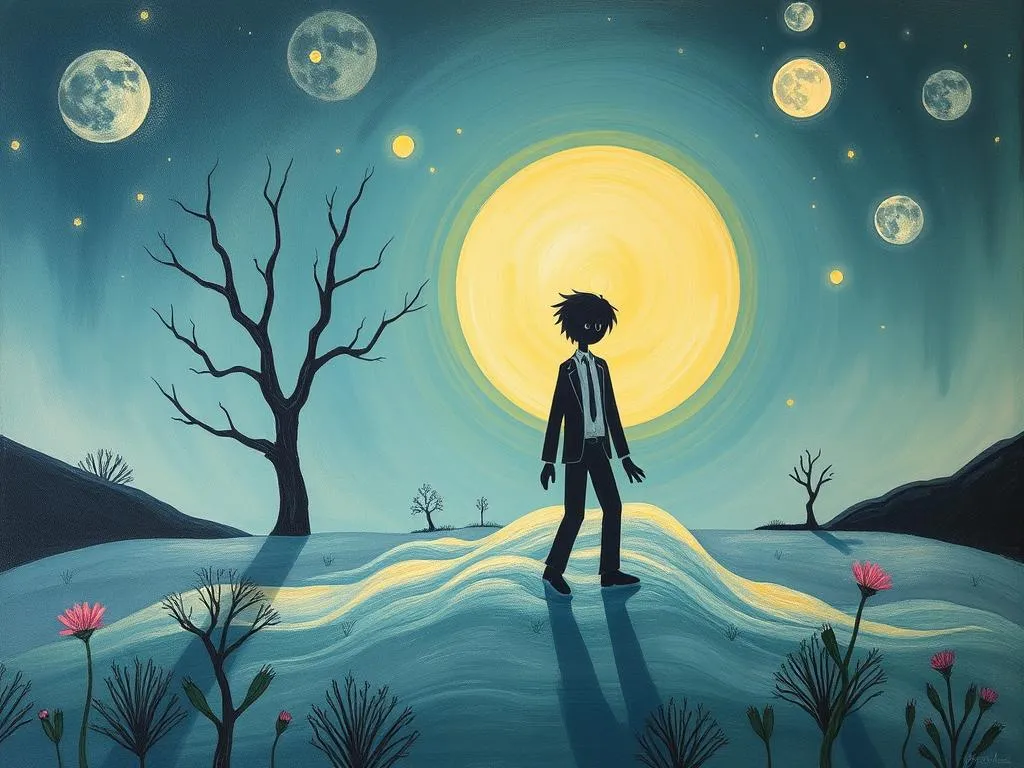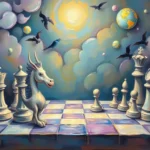
Introduction
Dreams have long fascinated humanity, serving as windows into our subconscious minds. Among the myriad of dream scenarios, those that involve a deceased loved one, particularly a boyfriend, can evoke a whirlwind of emotions. These dreams often resonate deeply with individuals, raising questions about grief, unresolved feelings, and the nature of love that transcends life and death. Understanding these dreams can be a vital step in the healing process, helping individuals make sense of their emotions and experiences. In this article, we will delve into the symbolism, variations, and real-life connections of dreams involving a dead boyfriend, offering insights that may resonate with your personal experiences.
Symbolism and Meaning
Dreams of a dead boyfriend can symbolize a range of emotions and concepts, many of which are rooted in grief, loss, and unresolved feelings. Here are some common symbols and their meanings in this context:
-
The Boyfriend: Represents love, companionship, and the emotional bond shared during the relationship. His presence in the dream may indicate a desire to reconnect with those feelings or to seek closure.
-
Death: Often symbolizes transformation rather than an end. It can signify the end of a chapter in your life, prompting reflection on how the relationship has shaped you.
-
Communication: If the dream features conversations with the deceased, it may reflect your need for closure or unresolved issues that linger in your mind.
-
Emotions: The feelings experienced during the dream—be it sadness, happiness, or confusion—are crucial in understanding its meaning. They can indicate your current emotional state regarding the relationship and the loss.
-
Settings: The locations within the dream can also hold significance:
- Familiar places may symbolize nostalgia and comfort.
- Strange or dark environments could reflect feelings of confusion or unresolved grief.
Different Perspectives
Understanding dreams of a dead boyfriend can vary across different psychological and cultural perspectives:
-
Psychological Perspective: From a psychological standpoint, these dreams may represent your subconscious grappling with grief. They might serve as a mechanism for processing emotions that have yet to be fully addressed.
-
Cultural Perspective: In many cultures, dreams of the deceased are viewed as visits from the spirit world, suggesting that the dead are trying to communicate with the living. This can evoke a sense of comfort or unresolved issues that need addressing.
-
Spiritual Perspective: Some interpret these dreams as messages from beyond, offering guidance or reassurance about your life choices or emotional state.
Key Scenarios and Variations
The nuances of dreams involving a dead boyfriend can vary greatly. Here are some common scenarios and how they might influence interpretation:
-
Reunion in a Happy Setting: If you dream of reuniting with your boyfriend in a joyful environment, it often signifies acceptance of the loss and a celebration of the relationship. This scenario suggests that you have found peace with your memories.
-
Confrontation or Argument: Dreams where you argue or confront your deceased boyfriend may indicate unresolved feelings or anger about the relationship or its end. This could be a sign that you need to work through these feelings for healing.
-
Seeking Closure: If you find yourself asking questions or seeking explanations in the dream, it highlights a longing for closure. This scenario often points to unresolved issues or questions about the relationship that still weigh on your mind.
-
Presence in Daily Life: If your boyfriend appears in mundane situations, it can symbolize the ongoing impact of your relationship on your daily life. This dream may indicate that his influence still shapes your decisions and emotions.
-
Unexpected Appearances: If your boyfriend appears unexpectedly or in unusual forms, it suggests that you may be struggling with accepting the loss or that you are wrestling with aspects of your identity post-relationship.
These variations can provide deeper insights into your emotional state and the nature of your grief.
Real-Life Connections and Takeaways
Connecting dream experiences with real-life situations can be enlightening. Here are some practical insights and self-reflection prompts to consider:
-
Reflect on Your Grief: How do you feel about your boyfriend’s absence in your waking life? Understanding your grief journey can help you process emotions that may arise in dreams.
-
Identify Unresolved Issues: Are there aspects of the relationship that remain unresolved? Consider journaling about your feelings or discussing them with a trusted friend or therapist.
-
Embrace Your Emotions: Allow yourself to feel whatever emotions emerge from these dreams. Whether it’s sadness, joy, or confusion, recognizing and validating these feelings can facilitate healing.
-
Create a Ritual: If you feel a strong connection to your deceased boyfriend, consider creating a ritual to honor his memory. This could be lighting a candle, visiting a meaningful location, or writing a letter to him.
-
Seek Professional Support: If these dreams are particularly distressing or if you’re struggling with your grief, consider seeking the help of a professional. Therapists specializing in grief can offer valuable support and coping strategies.
-
Explore New Beginnings: Dreams can also be a catalyst for self-discovery. Reflect on how your relationship has shaped you and consider how you can carry those lessons into new relationships or experiences.
Conclusion
Dreams of a dead boyfriend can be complex and multifaceted, often reflecting our deepest emotions and unresolved issues. By exploring the symbolism, variations, and real-life connections of these dreams, we can gain valuable insights into our emotional journeys. Every dream is unique, and personal reflection is crucial in understanding its significance. As you navigate your own dreams of a deceased loved one, remember that they may serve as a bridge to healing, self-discovery, and ultimately, acceptance. Embrace the journey of understanding your dreams, and allow them to guide you toward emotional resolution and growth.







